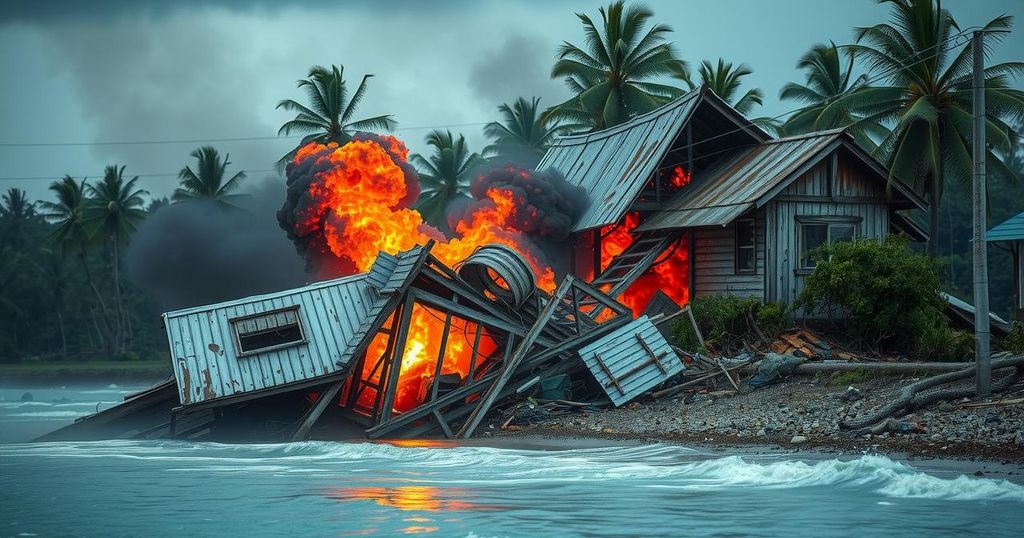Cyclone Chido: Catastrophic Impact in Mayotte and Mozambique
Cyclone Chido struck Mayotte on December 15, causing widespread damage and disrupting essential services. The storm is linked to climate change and led to challenges in rescue efforts. Following Mayotte, the cyclone progressed to Mozambique, affecting millions. International aid has been pledged, although the situation remains critical amid substantial losses.
On December 15, Cyclone Chido made landfall in Mayotte, a French territorial island located in the Indian Ocean, unleashing catastrophic damage across the region. The cyclone obliterated shantytowns and wreaked havoc on vital infrastructure, including the local airport, leading to significant challenges in emergency response operations. The cyclone’s intensity is attributed to climate change, with experts pointing to the unusually warm waters in the Indian Ocean as a contributing factor. As a result of the cyclone, power, water, and communication services have been disrupted, complicating the ongoing rescue efforts amid reports suggesting that the death toll could potentially reach thousands.
Following its impact on Mayotte, Cyclone Chido proceeded to hit Mozambique, compounding the devastation already experienced. The United Nations Office for the Coordination of Humanitarian Affairs (UN OCHA) has issued a warning, indicating that approximately 1.7 million individuals are at risk in the affected regions. In response to the disaster, European Union President Ursula von der Leyen and the World Health Organization have pledged aid to support recovery efforts. Moreover, the presence of 100,000 undocumented residents in Mayotte presents additional obstacles in comprehensively assessing the losses sustained due to the cyclone’s landfall.
The context of Cyclone Chido’s destruction lies in the increasing frequency and intensity of extreme weather events, a phenomenon significantly driven by climate change. The rising temperatures of the Indian Ocean have been linked to such cyclones, raising concerns among meteorologists and climate experts. The impacts of Cyclone Chido highlight the vulnerabilities of island communities and coastal nations like Mozambique, which often rely heavily on their local infrastructures. As evidenced by this event, effective disaster management becomes crucial in safeguarding populations against catastrophic natural occurrences.
In summary, Cyclone Chido has inflicted severe damage in Mayotte and Mozambique, with thousands feared dead and millions at risk. The cyclone exemplifies the urgent need for heightened attention to climate-related weather phenomena and effective disaster preparedness strategies. International aid efforts are underway, yet the situation remains dire, underscoring the vulnerabilities faced by these regions in the face of climate-related disasters.
Original Source: m.economictimes.com




Post Comment